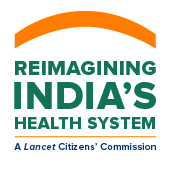In Conversation: Priya Sarma, M.S. candidate in Global Health and Population, Harvard T.H. Chan School of Public Health
October 29, 2023

I’m currently a second-year M.S. student in Global Health at Harvard University. Over the past summer, I worked as a Cultural Bridge Fellow with the Government of Meghalaya and a few other students from the Harvard Kennedy School of Government, to identify gaps in the implementation and utilization of the Chief Minister’s Safe Motherhood Scheme for institutional deliveries. My work in Meghalaya showed me how access to care was limited in rural settings and how the quality of care at public facilities was poor. I also realized that there was the absence of a centralized quality program that monitors and ensures safe delivery at institutions. This experience motivated my interest in health systems research in India, where there are still significant challenges in ensuring access to quality health services in rural regions.
I’m currently working in the citizens’ engagement workstream which looks at the expectations and experiences of healthcare from healthcare providers, including frontline workers and citizens of diverse social groups in India across gender and age. I’ve been performing intra-state comparisons to identify regional variations, trends, and disparities within the Indian healthcare system. I’m particularly interested in looking at the expectations and experiences of individuals who reside in rural regions. I’m curious to see whether they believe the health system is high-performing and responsive to their needs. I say this because past research and my own experiences have shown that although individuals may have received poor-quality of care, they tend to report positive visits and experiences. This could be due to lower expectations of the health system. When I interviewed women in Meghalaya about institutional deliveries, all women reported great experiences at the facility, even though objective measures that looked at factors such as hygiene and availability of equipment would indicate otherwise.
I think that India is making progress towards achieving UHC through the implementation of the AB-PMJAY scheme. However, there remain significant issues with poor quality of care in the public sector, retention of doctors in rural areas, and ensuring financial protection for all individuals. Another challenge is that at least 30% of the population, also dubbed as the “missing middle” in a report by NITI Aayog, is devoid of any financial protection for health. They are uncovered due to coverage gaps in PMJAY and overlapping schemes. The substantial size of this population ineligible for government-subsidized or social health insurance schemes raises concerns and requires a reexamination of the current insurance landscape.
My hope is that the commission will help guide policymakers toward developing a unified approach to implementing health systems reform. I also hope that the work of the commission will foster collaboration across different sectors and empower the voices of citizens, effectively integrating their perspectives into the policymaking process.
